The cosmetics company selling Siberia to the world
- Published
Natura Siberica has become a popular global brand.
If it wasn't for the intoxicating smell of competing perfumes, you might think that cosmetics company Natura Siberica was making ice cream.
At its factory in Tallinn, the capital of Estonia, large vats of shampoo the colour of raspberry ripple soft scoop are being whipped into a smooth consistency.
Nearby, a body cream that looks like mint yoghurt is being slowly churned in a large metal cylinder, and a worker is adding dried berries to gallons of body rub that could be strawberry sorbet.
Founded in 2008, Natura Siberica is a Russian company that makes a wide range of organic hair and skincare products made with extracts from herbs grown and harvested across the vast and remote Russian province of Siberia.
With 4,000 employees across its three Russian factories, and one in Estonia, it now exports around the world and has annual sales of more than $300m (£214m).
The business is the brainchild of its founder and boss Andrey Trubnikov.
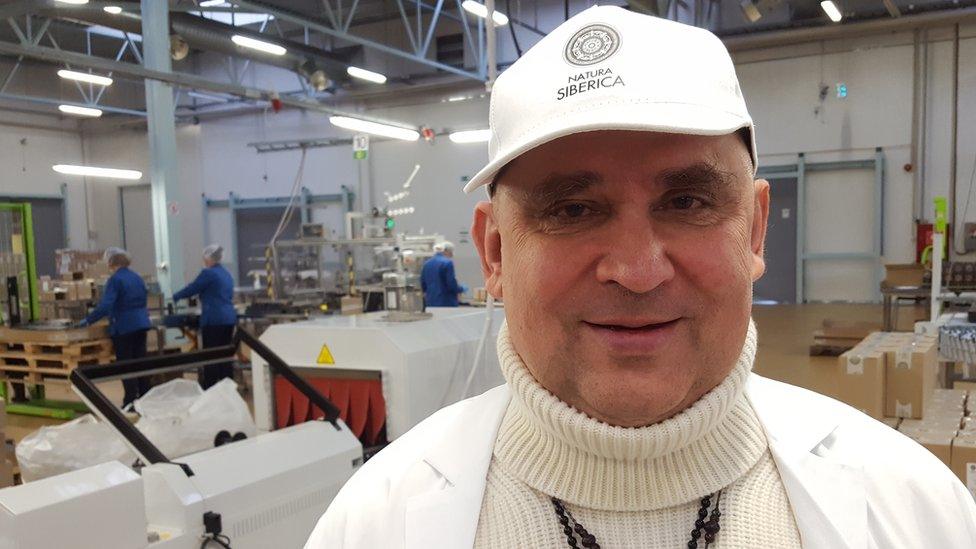
Andrey Trubnikov was inspired by the herbs and clean countryside of Siberia
A serial entrepreneur who previously ran a drinks business, he says he wanted to do his bit to help diversify the Russian economy away from the energy sector.
"The idea struck me when I saw that Russia was only exporting oil and gas, and so on," he says.
"And I thought that we have such clean land like Siberia, and lots of herbs... so I thought maybe I could start a cosmetics brand based on the wild herbs of Siberia."
So buying his own farm in Siberia he started to grow native herbs, at the same time as paying local people to harvest wild herbs for him.
Aiming to be a success globally, Mr Trubnikov decided from day one that the company would promote itself as being from Siberia and not Russia.
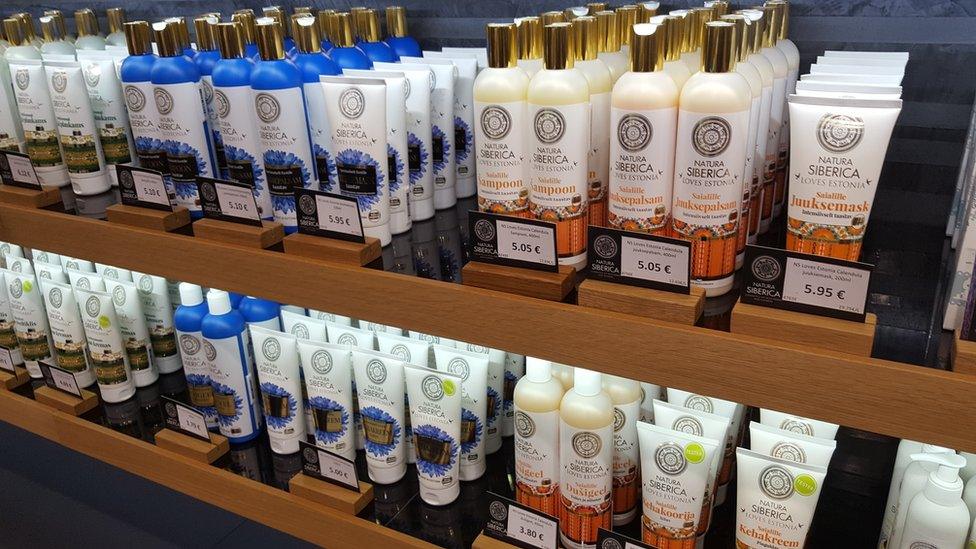
The company sells more than 400 different products
"I didn't want to put 'Russian cosmetics' or something like that on the labels, because Russia is associated with the Kremlin and things like that, which are not good to hear for the Western consumer," he says.
"That is why I said it was not Russian cosmetics, it was Siberian cosmetics, and it has worked."
Today the business exports 15% of its production to 45 countries across Europe and Asia, and it is particularly popular in Spain and Greece.
Mr Trubnikov says he believes that this is because they are hot countries, which makes buying skincare products from somewhere that can be as cold as Siberia seem particularly appealing.
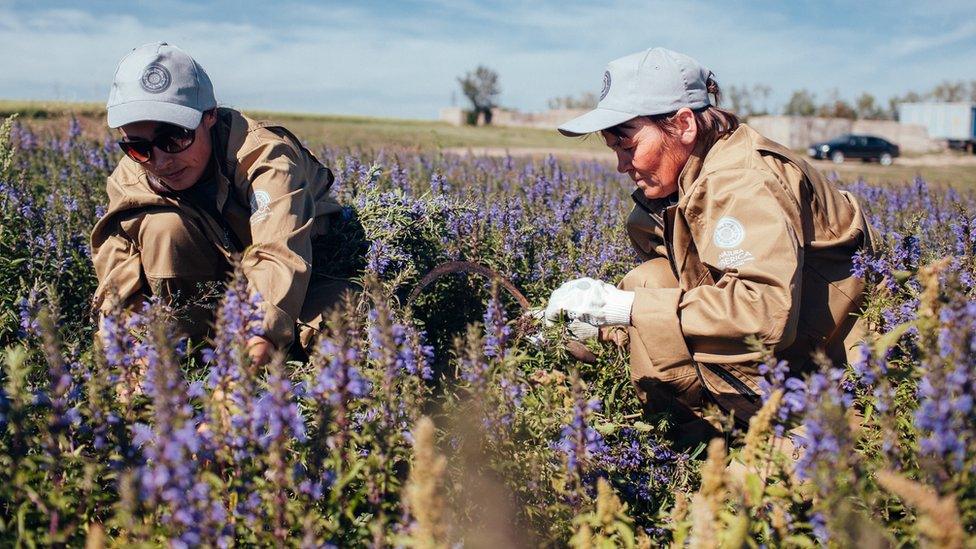
Natura Siberica harvests herbs from across Siberia
But while Natura Siberica and its no less than 400 product lines are now continuing to grow in popularity around the world, Mr Trubnikov says that when he initially tried to establish some export sales he struggled.
Back in its early years he tried to establish the UK as the company's first overseas market, but he couldn't get any shops to stock the products. Mr Trubnikov went to London himself to see what the problem was, and show his products to British members of the public.
The people he spoke to wrongly believed that Siberia was so cold all year round that you couldn't even grow plants there in the summer.
"[British] people said to me that I had never been to Siberia because there are no plants, no trees, only cold weather and only snow and ice."
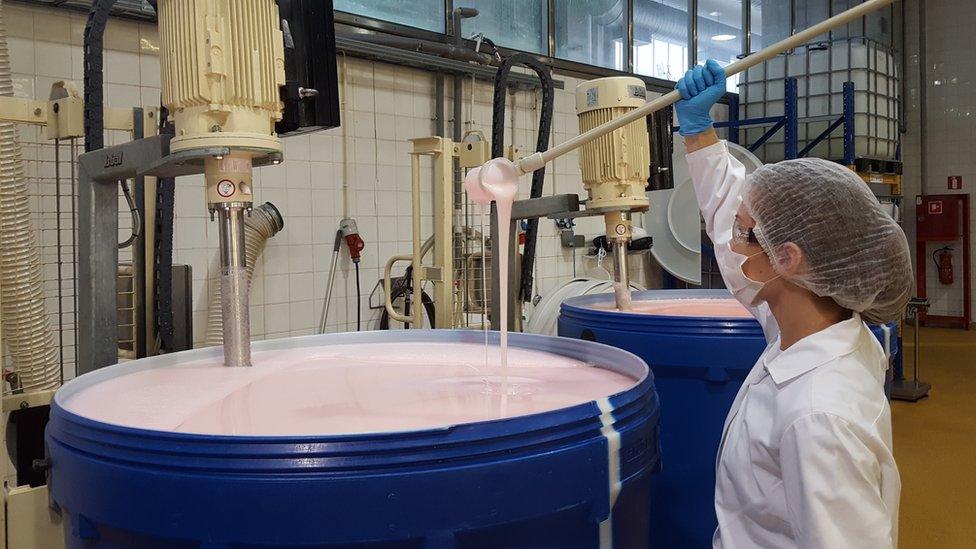
The company has 300 workers at its factory in Estonia, and 4,000 in total
Thankfully for Mr Trubnikov he then tried the French market instead, and Natura Siberica was soon a success there, before expanding into other European nations including the UK where shops were now happy to stock the products as they had proven popular in other countries.
While most of the company's overseas sales come via wholesale - its products are stocked by retailers - Natura Siberica does have nine of its own overseas stores. They are found in Denmark, Spain, Hong Kong, Estonia, Serbia and Montenegro.
Alicia Zelenkova, its director of international projects development, says the company's own shops are a vital "window" through which customers can find out more about the company and where it comes from.
"Having our own stores is the way we promote the brand, and how we show people the uniqueness of our products, because otherwise it is quite difficult to communicate the same story via other retailers," she says.
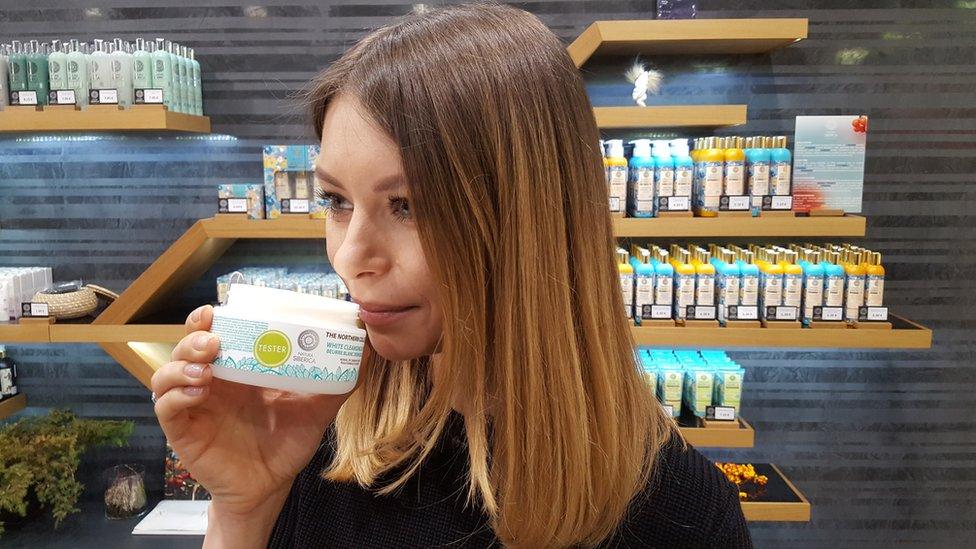
Alicia Zelenkova says that the company's own shops act as a vital 'window' onto the brand
Ms Zelenkova adds that the company also develops special edition ranges for specific countries, such as a body scrub for the UK market that in addition to Siberian herbs contains extracts from Scottish wild thistle.
The company, which has its headquarters in Moscow, also adapts its packaging for different markets, with consumers in western Europe said to want significantly less packaging than those in Russia.


This is the latest story in a series called Connected Commerce, which every week highlights companies around the world that are successfully exporting, and trading beyond their home market.

Although Natura Siberica uses social media, and particularly Instagram, to promote itself, currently it has only limited online sales.
Mr Trubnikov says he wants to increase the ecommerce side of the business substantially, and he predicts that online could ultimately reach as much as 40% of the firm's turnover. As such, he says the company is now looking to tie-up with a large internet partner.
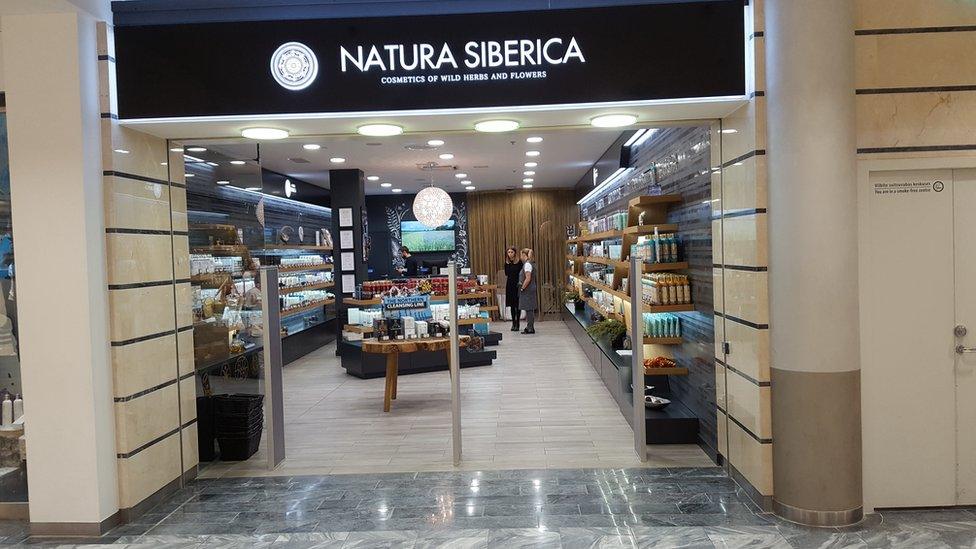
The company has 37 shops in Russia and nine overseas
UK branding expert Rita Clifton, chairman of business consultancy BrandCap, says that Natura Siberica has been successful in the "astonishingly competitive" cosmetics market because of its unique Siberian provenance.
However, she cautions that building up online sales can be difficult.
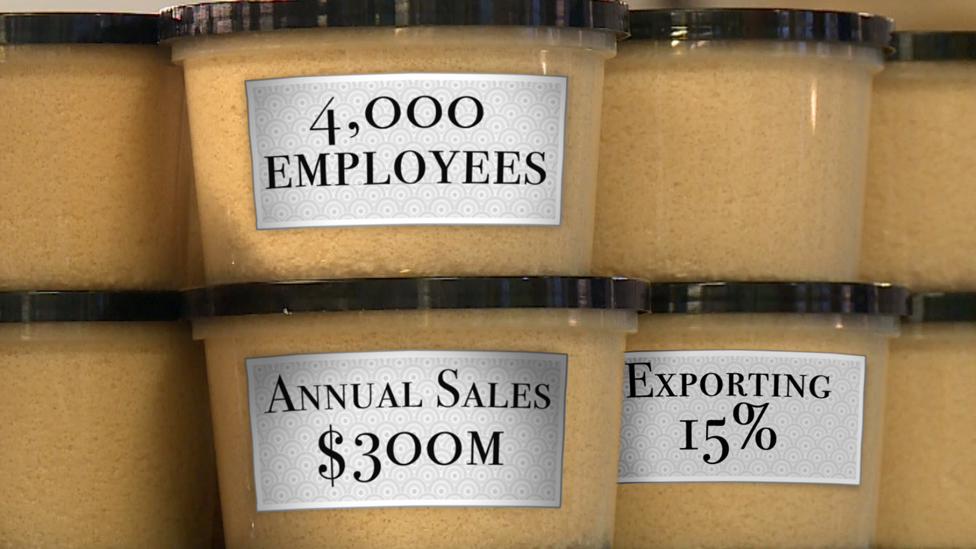
The 10-year-old company is now a big operation
"In a digital world it is much more difficult to break through, because cyber space is an infinite amount of shopping space, and if you don't stand out I'm afraid that in cyber space no-one can hear you scream," says Ms Clifton.
Mr Trubnikov adds that his other big ambition is to crack the US market, but he admits that being Russian makes this a little complicated.
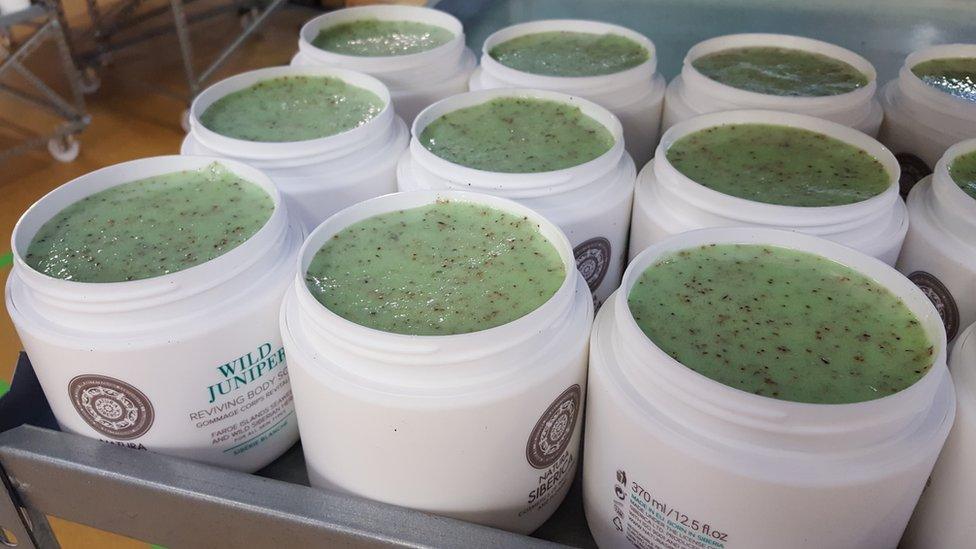
All Natura Siberica's products are made from natural, organic ingredients
To improve his chances, he wants to establish Natura Siberica's US base in Los Angeles.
"Why I chose Los Angeles is because people in Los Angeles are far from politics," he says. "If I opened in Washington near the White House, I don't think that would be a nice idea... but in Los Angeles it is very nice, and San Francisco I heard is very nice."